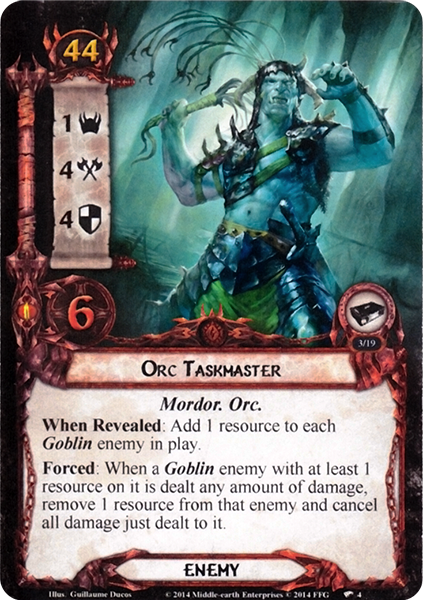
If there are 2 Orc Taskmasters in play, and I deal damage to a Goblin enemy with 2 resources on it, can I remove both resources?
One argument would be that when the damage is dealt both Forced effects trigger simultaneously. Then I resolve each of them. Since the effect uses the word "and", it does not matter that I cannot fully resolve the effect the second time, I just resolve it as much as possible by removing a second resource token.
Another argument would be that after the effect resolves the first time, the damage is cancelled and there is no longer a trigger for the second effect.